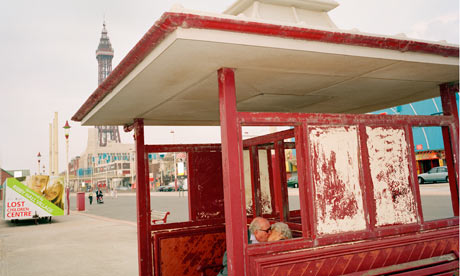
Since everyone now knows that there are more old people around than ever before, it's not surprising that there's been a spate of books about age. Crazy Age by Jane Miller (born in 1932) is the latest and definitely one of the best. It is a highly literate and amusing exploration of the glooms and possibilities of the condition, how it feels, what it offers or really lacks – as opposed to what younger people might think it does.
A teacher herself, Jane Miller has written extensively about women and education and the relation between the two, but there's no trace here of a stolid academic style: her writing is so fluid and amusing that you mostly forget that old age is supposed to be such a gloom. Not that she funks the downside of it – there's a long account of a close friend descending, not too miserably, into Alzheimer's disease; but many more accounts of those facing old age with considerable zest.
What makes it so readable is not just that she writes tellingly about the experiences of herself and those she knows, but that she draws on characters in books – by Muriel Spark or Edith Wharton, Turgenev or Pushkin (she's a Russian translator, among other things); we're as likely to read about Ivan Illich or Updike's Rabbit as of her own two new knees or her father's death. She has her critique of Simone de Beauvoir, "who has written a book about it 700 pages long saying we shouldn't think about it too much", and cites Philip Roth's distaste for the view that "a healthy old age is somehow morally superior, as if frailty is always your own fault". She quotes Carolyn Heilbrun (who actually committed suicide before she was 80 to avoid the extremes of age) saying that "it is perhaps only in old age, certainly past 50, that women can stop being female impersonators" – meaning, I suppose, trying to conform to what other people think women should be like. And she notes Tolstoy, "who probably had more hair than he actually needed, making a good deal out of baldness in his novels".
She's very good on the sense of time passing, of memory: her youth with no fridge, no vacuum cleaner, "putting up with permed hair and lino and tinned ham, with houses left like solitary teeth in bombed London terraces"; growing up when there was no youth culture and girls dressed the same as their mothers and aunts. She's "puzzled by the fact that memory is so much better at unhappiness than happiness" but is certain that she likes being old "at least as much as I liked being middle-aged and a good deal more than I liked being young".
She is shrewd about life's stages: how your views change, how other people's views about you change – you go from being afraid for your children to being almost afraid of them. And there's some autobiography: she grew up expected, as not all women were then, to have a proper career. She has grandchildren and enjoys them, while being coldly aware of how the young look at the old, and copes with the ailments of her "main friend and husband of 54 years" – Karl Miller, writer and founder of the London Review of Books, with "his hyper-sensitive knee which he has long had, but which strives to keep up with the collection of parvenu pains he has acquired since". And she's amusing about the ghastly clutter that anyone our age tries so hopelessly to reduce.
Does she come to conclusions? Probably no more nor less than Diana Athill (who is considerably older) in Somewhere Towards the End: that old age has its own intriguing new aspects, that you find out fascinating things, miss some and acquire others; learn, with luck, to accept the loss of what's gone – a pulsating sex life, for example. It is refreshing that, unlike so many others, she is not insisting that this or that should be done about old age, the way it's treated or its requirements met: she is simply musing excellently on what it can be and how it feels. If anyone doubts that old age can actually be interesting, this is the book for them.

